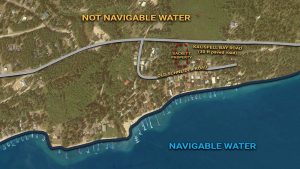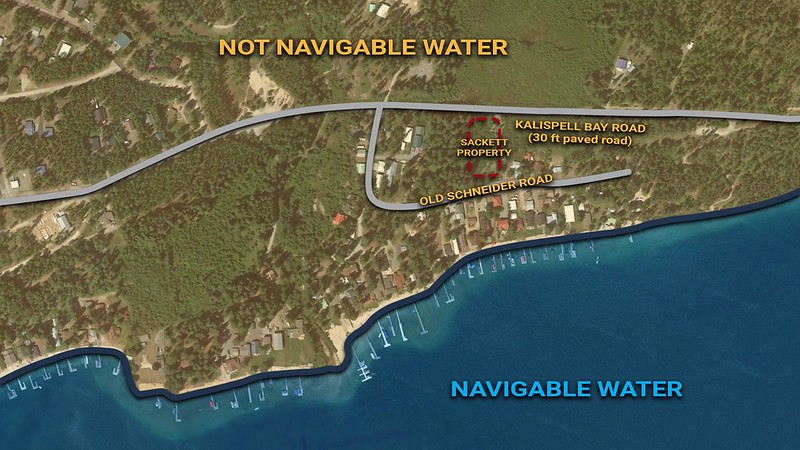Washington, D.C., May 25, 2023: Today, an Idaho couple’s second journey to the U.S. Supreme Court over unlawful wetlands enforcement ended with final clarity in Clean Water Act regulation and a resounding victory for property owners across the country.

“The Court’s ruling returns the scope of the Clean Water Act to its original and proper limits,” said Damien Schiff, a senior attorney at Pacific Legal Foundation who argued the case. “Courts now have a clear measuring stick for fairness and consistency by federal regulators. Today’s ruling is a profound win for property rights and the constitutional separation of powers.”
The Court is unanimous in its finding that the CWA does not apply to the Sacketts’ property. Consistent with PLF’s argument, a five-Justice majority of the Court also adopts Justice Scalia’s plurality opinion from the Court’s 2006 decision in Rapanos v. United States, and holds that “the CWA extends to only those ‘wetlands with a continuous surface connection to bodies that are “waters of the United States” in their own right,’ so that they are ‘indistinguishable’ from those waters.” As the majority explains, such a water must be “a relatively permanent body of water connected to traditional interstate navigable waters.”
In 2007, Chantell and Mike Sackett were among the early victims of the fractured Rapanos decision when they started to build a new home in Priest Lake, Idaho, but were stopped by the Environmental Protection Agency and Army Corps of Engineers. The agencies insisted the residential lot was a wetland subject to federal authority and ordered the work stopped under threat of tens of thousands of dollars a day in fines unless they secured a federal permit. The Sacketts spent the next 16 years fighting for the right to use their property. Their ordeal spanned four presidential administrations and every level of the federal court system.
Sackett v. Environmental Protection Agency marks Pacific Legal Foundation’s third win of the term alongside Tyler v. Hennepin County, also decided today. PLF now has 17 victories out of 19 cases litigated at the nation’s highest court.
More here. https://pacificlegal.org/case/sackett-v-environmental-protection-agency/
